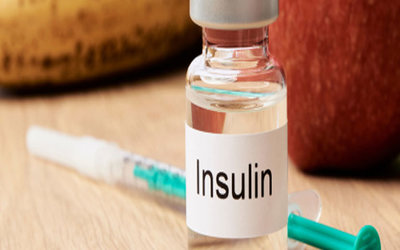Insulin is produced by our pancreas which allows the smooth usage of glucose for energy.
[the_ad id=”6084″]
Glucose – a type of sugar found in many carbohydrates is derived when our digestive tract breaks down carbohydrates received from a meal or snack. It is further absorbed in the bloodstream through a lining in our small intestines, post which, insulin prompts the cells in our body to absorb sugar and use it for energy. As Insulin balances the blood glucose levels in our body, any excess glucose in the bloodstream is stored in the liver. This stored glucose is only released when the body is stressed or needs extra energy.
Understanding Diabetes
A lack of insulin production or the inability to use insulin properly results in Diabetes. There are two main types of diabetes:
Type 1 diabetes is an autoimmune disease that causes the body to attack itself. For a Type 1 diabetes patient, the body can’t produce insulin because the bodily system has destroyed all the insulin-producing cells in the pancreas. This disease is most commonly seen in young people, although can also be seen in adults too.
Type 2 diabetes can be seen in people of all ages. It is majorly caused due to obesity and lack of exercise. It is commonly characterized by high blood sugar, insulin resistance and relative lack of insulin. A type 2 diabetic patient is at the potential risk of developing heart diseases, stroke, kidney failures, diabetic retinopathy, etc.
Diabetes Treatment through Insulin
Insulin injections are helpful for both types of diabetic patients. This external insulin acts as a replacement or supplement to our body’s insulin. Type 1 patients should inject insulin to control their blood sugar level while type 2 patients can manage their levels by modifying their lifestyle and oral medications. If these do not work in controlling the glucose levels, then they may also be administered with insulin shots.
Types of insulin treatments
All types of insulin produce the same effect. They overcome the increase or decrease and accordingly fill the void. That being said, there are 4 types of insulin treatments:
- Rapid-acting insulin – This insulin starts working 15-mins after it has been administered. Its effects last for 3 to 4 hours and are often taken used before a meal.
- Short-acting insulin – This injection is administered an hour before the meal. Its effects start working 50 mins after injecting and lasts for up to 5 to 8 hours.
- Intermediate-acting insulin – The effects of this type of insulin start taking over in 1 to 2 hours after injection and lasts for up to 14 to 16 hours.
- Long-acting insulin – The effects of this insulin starts working after 2-hours of injecting and can last for upto 24 hours or longer.
Administration and dosage
Insulin cannot be administered through the mouth, so, the patient has to take it by syringe, insulin pen or insulin pump. The doctor or diabetic consultant will educate the patient on how to administer these injections. It can be taken under the skin on different body parts like thighs, buttocks, upper arms and abdomen. Make sure to not inject it within two inches from the belly button as the body won’t absorb it well. The insulin intake of patients varies based on their blood glucose level and diabetes management goals. Sometimes, the doctors may prescribe to take the shots 60 mins before the meal or just before eating. The amount of insulin to be administered always depends on the level of physical activity, the severity of the patient’s diabetes and diet. Based on these, the doctors may prescribe one-shot/day or ever 3-4 shots/day if needed. They may also ask the patients to use both rapid-acting and long-acting insulin.
Insulin reactions
When a person exercises too much and doesn’t eat enough, the glucose levels drop too, triggering an insulin reaction. There should always be a proper balance between the insulin administered with the food and calories. Hypoglycemia, or blood glucose levels that are too low, can sometimes happen when you take insulin. This is called an insulin reaction.
Following are the symptoms of insulin reactions:
- Tiredness
- Inability to speak
- Sweating
- Confusion
- Loss of consciousness
- Seizures
- Muscle twitching
- Pale skin
Treatment
To stop the effects of insulin reaction always carry the following fast-acting carbohydrates:
- 1/2 cup of non-diet soda
- 1/2 cup of fruit juice
- 5 Lifesaver candies
- 2 tablespoons of raisins
If used appropriately, insulin can keep the blood glucose levels in check. Having a healthy blood glucose level can prevent the risk of diabetes complications like blindness and loss of limbs. Talk to the doctor on lifestyle changes, ways to manage blood glucose levels and proper way to effectively use insulin for your treatment.
Source:

